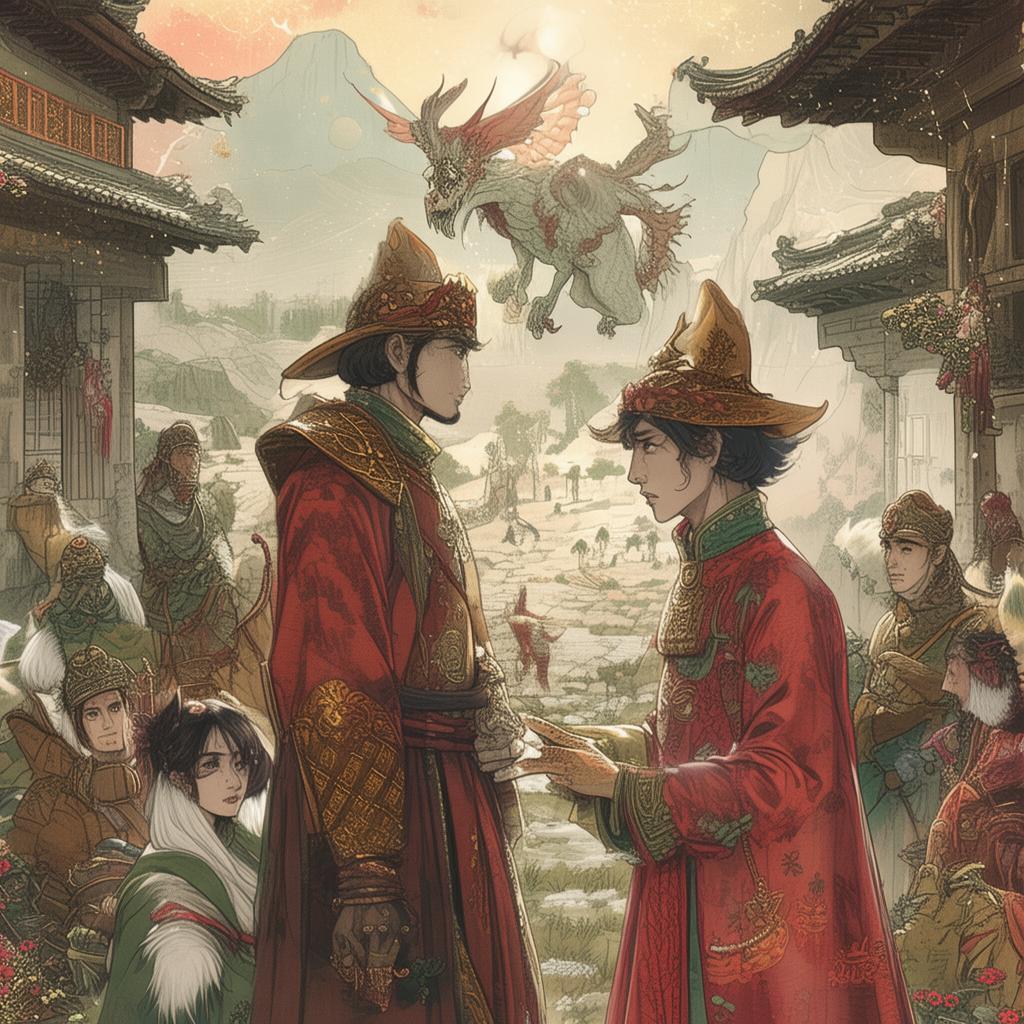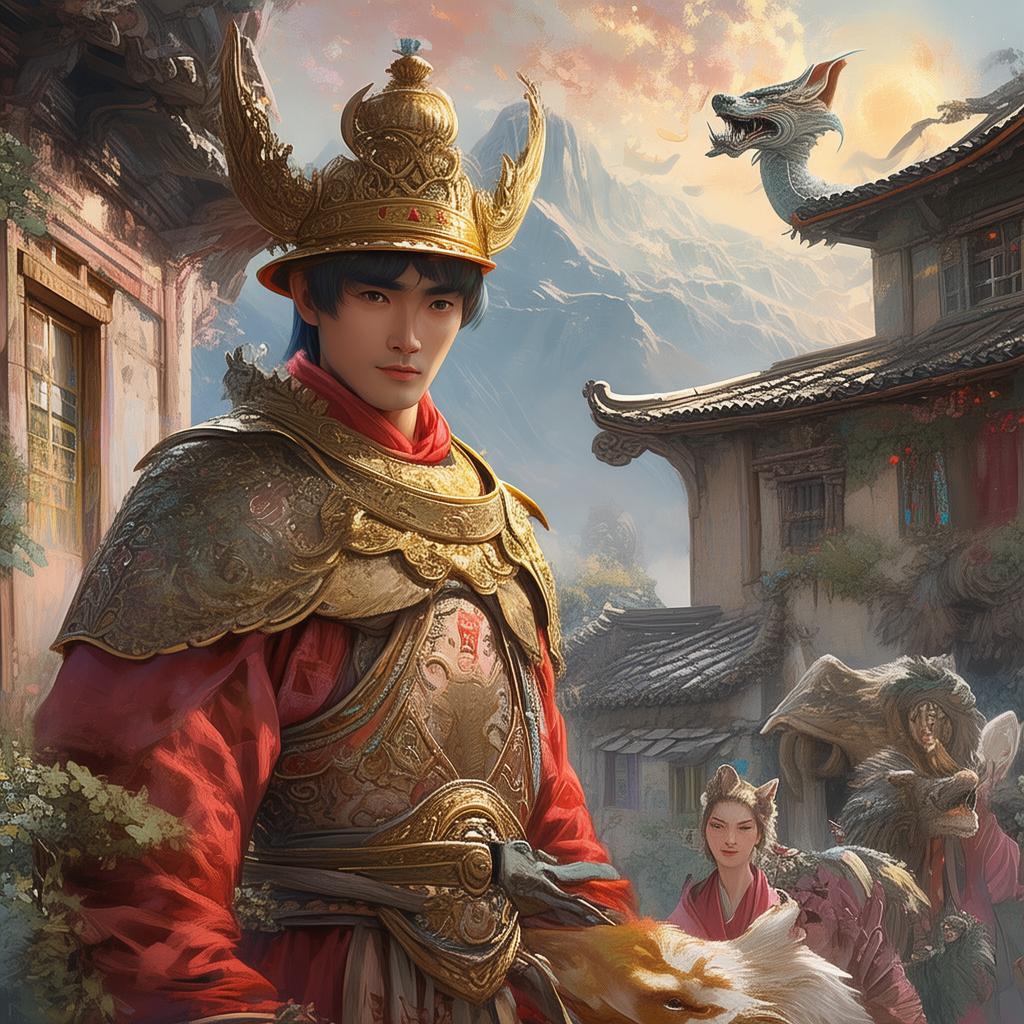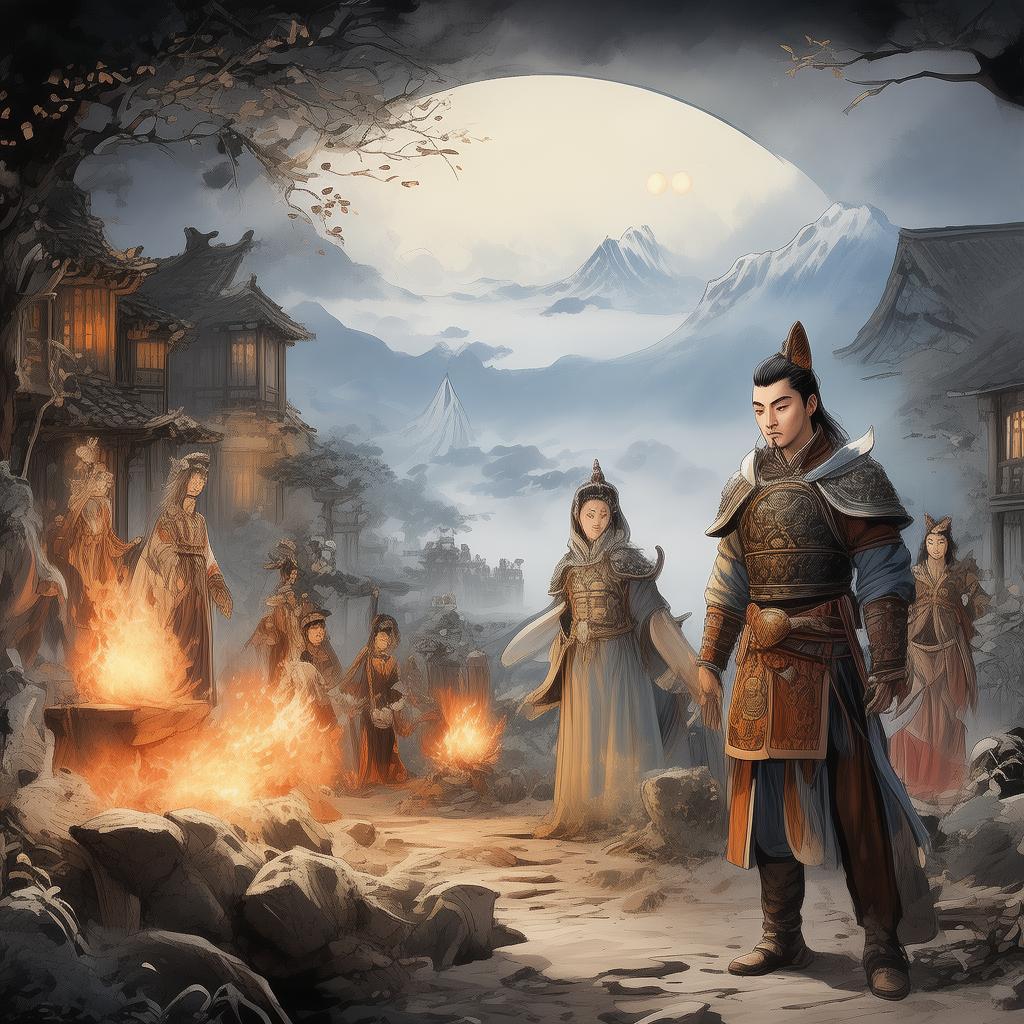The Rhythms of Redemption: The Bamboo Drum of A Songtao
In the heart of the lush, verdant mountains that rise like the spine of a sleeping dragon, there lay the village of Songtao, a place where time seemed to stand still and the ancient rhythms of the Miao people were woven into the very fabric of life. The village was known for its mystical bamboo drums, crafted by master drummers whose lineage was as old as the mountains themselves. Among these drummers was A Songtao, a young man whose talent for drumming was said to be as rare as the golden bamboo from which the drums were made.
The drum of A Songtao was not just an instrument; it was a vessel of ancient magic, a symbol of the village's collective memory and power. Its rhythm, the "Lost Rhythm," was said to be the key to the village's past and its future, a rhythm that could unlock the secrets of the ancestors and bring prosperity to the village.
One fateful evening, as the full moon hung like a silver coin in the sky, a great tragedy befell the village. The village's most revered master drummer, Ah Mu, fell victim to a mysterious illness. His death left a void in the hearts of the villagers and a silence in the bamboo grove where the drums were tuned.
In the days that followed, the rhythm of the Lost Rhythm was lost. Without it, the village felt as though it had been robbed of its soul. The once vibrant dances and songs had turned to sorrowful whispers. The villagers turned to A Songtao, the only one who could fill the void left by Ah Mu's death.
A Songtao, however, was burdened by a personal tragedy of his own. His mother had died giving birth to him, and he had been raised by the village, his heart forever torn between the love he felt for the people and the emptiness left by the absence of his own mother. It was this emptiness that drew him to the drum, to the rhythm that he believed could fill the void within him.
As he took up the drum in Ah Mu's place, A Songtao felt the weight of the responsibility pressing down upon him. He spent endless hours practicing, seeking the rhythm that could bridge the gap between his heart and the drum. But as the days turned into weeks, the rhythm remained elusive.

It was during one of his many late-night vigils by the bamboo grove that A Songtao had a vision. He saw his mother, her eyes filled with love and wisdom, and she handed him a small, ancient scroll. On it was a rhythm, a pattern of dots and lines that seemed to dance before his eyes. A Songtao realized that this was the key to the Lost Rhythm, a rhythm that could not be played with hands but with the heart.
With newfound determination, A Songtao began to drum with his heart, channeling the emotions he had suppressed. The rhythm began to emerge, a hauntingly beautiful melody that echoed through the grove and into the village. The villagers gathered, their hearts heavy with sorrow, but as the rhythm grew, so too did their spirits.
As A Songtao played, the rhythm seemed to bring Ah Mu back to life. The master drummer's eyes flickered open, and he rose to his feet, the drum in his hands once more. The villagers erupted in cheers, for Ah Mu had returned not just in body but in spirit, guided by the rhythm that A Songtao had rediscovered.
The village was saved, and with it, A Songtao found redemption. The Lost Rhythm was no longer a mere melody; it was the heartbeat of the village, a symbol of unity, strength, and hope. A Songtao realized that his own journey had been the key to the village's survival. He had learned to embrace his past and his connection to the village, allowing the rhythm to guide him towards a new beginning.
And so, the bamboo drums of Songtao were once again played, their rhythms resonating through the mountains, a testament to the power of music, the resilience of the human spirit, and the enduring legacy of the Miao people.
✨ Original Statement ✨
All articles published on this website (including but not limited to text, images, videos, and other content) are original or authorized for reposting and are protected by relevant laws. Without the explicit written permission of this website, no individual or organization may copy, modify, repost, or use the content for commercial purposes.
If you need to quote or cooperate, please contact this site for authorization. We reserve the right to pursue legal responsibility for any unauthorized use.
Hereby declared.









